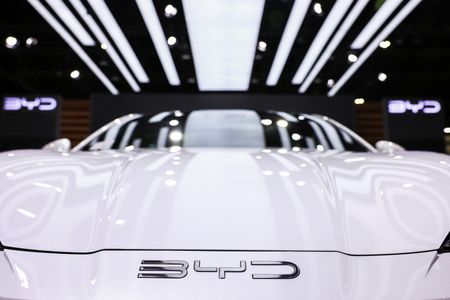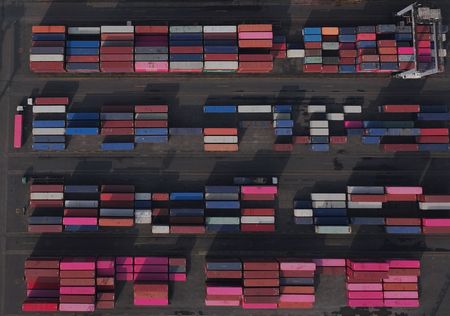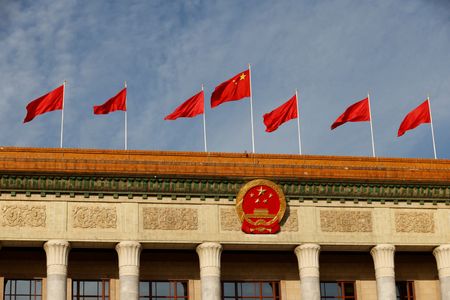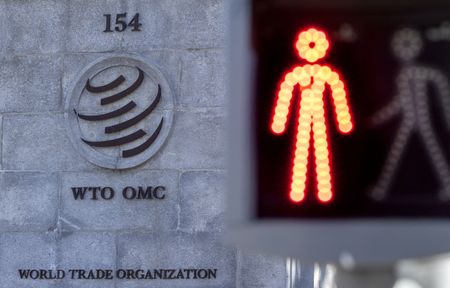(Reuters) -China’s BYD will delay mass production at its new electric vehicle factory in Hungary until 2026 and will run the plant at below capacity for at least the first two years, two sources familiar with the matter said.
At the same time, China’s No. 1 automaker will start making cars earlier than expected at a new plant in Turkey where labour costs are lower, and will vastly exceed its announced production plans, one of the sources said.
Shifting production away from Hungary in favour of Turkey would be a setback for the European Union, which has been hoping that its tariffs on EVs made in China would bring in Chinese investments and well-paid manufacturing jobs.
BYD’s 4 billion euro ($4.64 billion) plant in Szeged, in southern Hungary, will start mass production in 2026 but only make a few tens of thousands of vehicles over the whole year, the sources said.
That would be a fraction of the plant’s initial production capacity of 150,000 vehicles BYD. It should eventually have a maximum capacity of 300,000 cars per year.
A third source confirmed the slower 2026 start-up.
BYD has said it will launch operations at Szeged in October, but has not said publicly when mass production will start. Production at Szeged is due to increase in 2027, but will still be below planned capacity, the sources said.
Meanwhile, the automaker’s $1 billion plant in Turkey, which had been slated to start production at the end of 2026 with an annual capacity of 150,000 cars, will make more cars than the Hungarian plant next year, one of the sources said.
Production at the plant in Manisa, western Turkey, will far exceed 150,000 cars in 2027 and BYD will greatly increase output again in 2028, the source added.
BYD did not respond to requests for comment.
The sources spoke on condition of anonymity because they were not authorised to discuss BYD’s production plans publicly.
BYD is building the plant in Hungary to sell cars in Europe tariff free. All the cars it currently sells in Europe are made in China, and subject to EU anti-subsidy tariffs on Chinese-made EV imports on top of the standard 10% duty. In BYD’s case, the total tariff is 27%.
Many of the cars made at the new plant in Turkey will also be destined for Europe and face no tariffs when exported to the European Union.
A shift toward cheaper production in Turkey would highlight the challenge for Chinese carmakers that want to build cars in Europe to avoid punitive tariffs, but balk at the region’s higher wages and energy costs.
Under right-wing Prime Minister Viktor Orban, Hungary, which will be the headquarters for BYD’s European operations, has become an important trade and investment partner for China.
Turkey has long served as a low-cost manufacturing hub for major automakers including Toyota, Stellantis, Ford, Hyundai and Renault.
In March, the Turkish government said China’s Chery will invest $1 billion in a plant with an annual production capacity of 200,000 vehicles.
SOARING DEMAND
BYD is expanding rapidly outside its home market China, where it faces a vicious price war. Reuters reported last month BYD has slowed its expansion in China by reducing shifts at some factories and delaying adding new production lines.
The change in production plans comes as BYD overhauls its European operations following strategic missteps that included failing to sign up enough dealers and hire executives with local-market knowledge, and offering hybrids in markets resistant to fully-electric cars.
Demand for BYD’s EVs, which are cheaper than European rivals’ models, is soaring in the region.
S&P Global Mobility has estimated the No.1 Chinese automaker will sell 186,000 vehicles in Europe this year, up from 83,000 units in 2024, and expects sales to double again to just under 400,000 units by 2029.
BYD has begun ramping up operations at its plant in Brazil, but has also been sued by Brazilian prosecutors over alleged labour abuses involving Chinese contractors hired to build the complex.
In Hungary, the automaker had planned to install production line machinery by September at the Szeged plant, first announced in 2023, the two sources said.
But in recent months it has delayed tooling of the production line, which is being built in one of its manufacturing hubs in China, the sources added.
BYD’s plans for Szeged may change. Over the last year, executives have mentioned the possibility of making a number of different models at the plant, including the Atto 2, Atto 3 and Dolphin.
One source told Reuters BYD will make the popular Atto 3 and Dolphin EVs as well as its upcoming low-cost Seagull model there, while another source said it would make the Atto 2, Atto 3 and Dolphin.
In Turkey, one source said BYD will make the fully-electric Seal U SUV, the Sealion 5 – though it was unclear whether it would be the fully-electric or plug-in hybrid version – plus two plug-in hybrid models, the Seal U Dmi and Seal 06 Dm-i.
($1 = 0.8627 euros)
(Reporting By Reuters Staff; Writing by Nick Carey;Editing by Josephine Mason and Susan Fenton)











